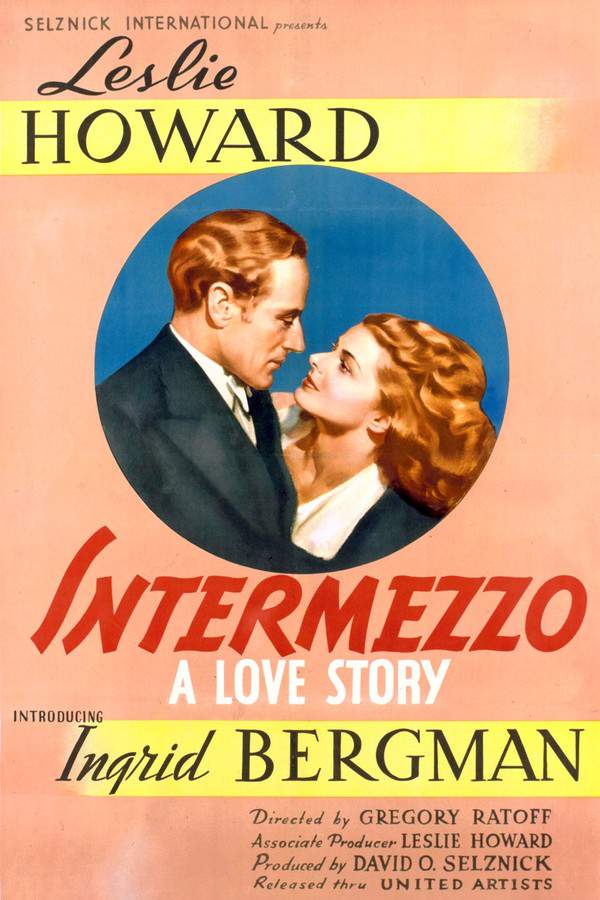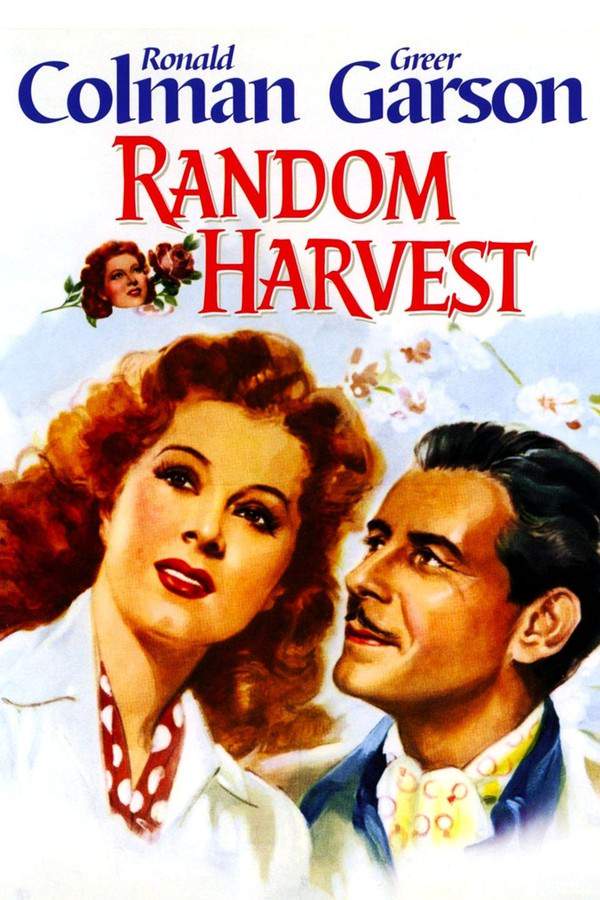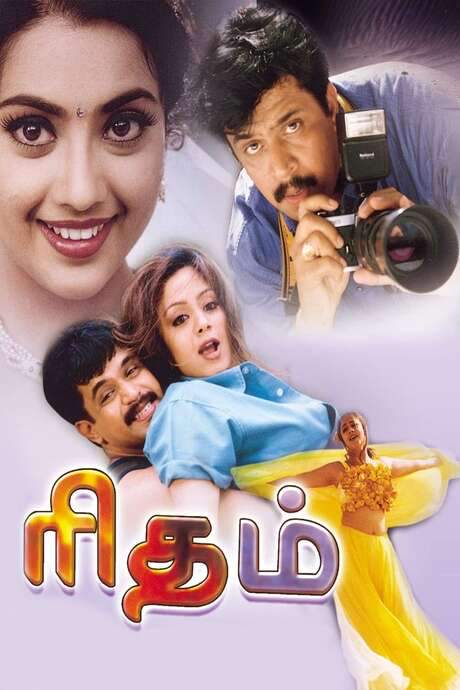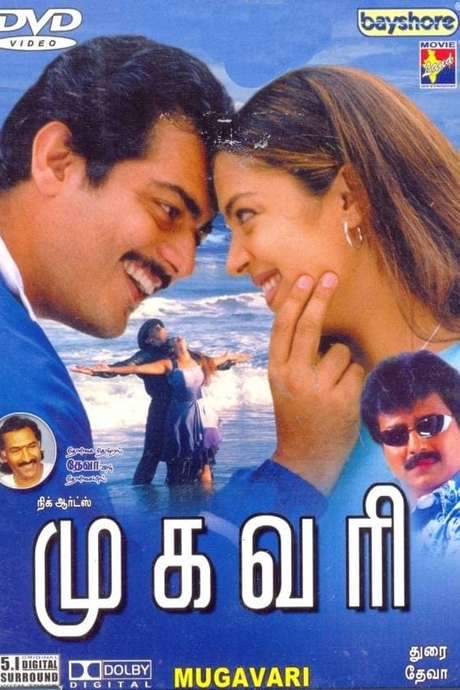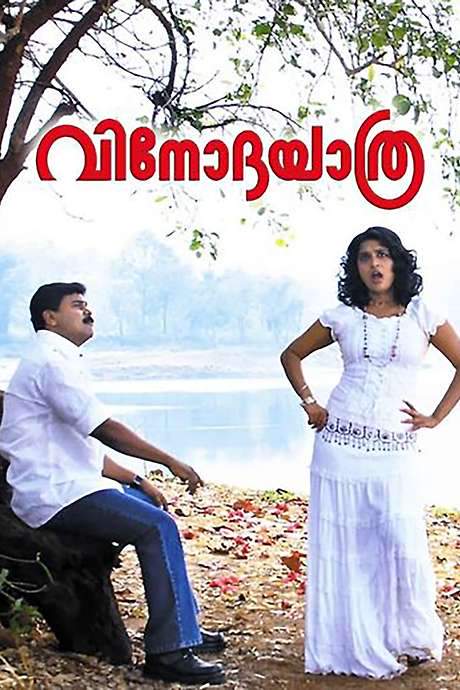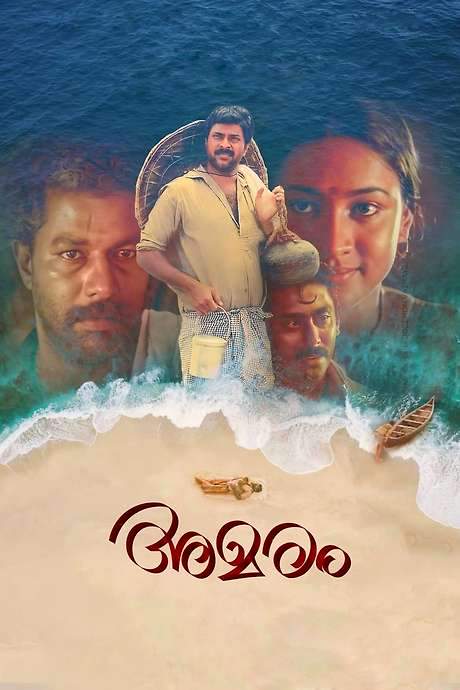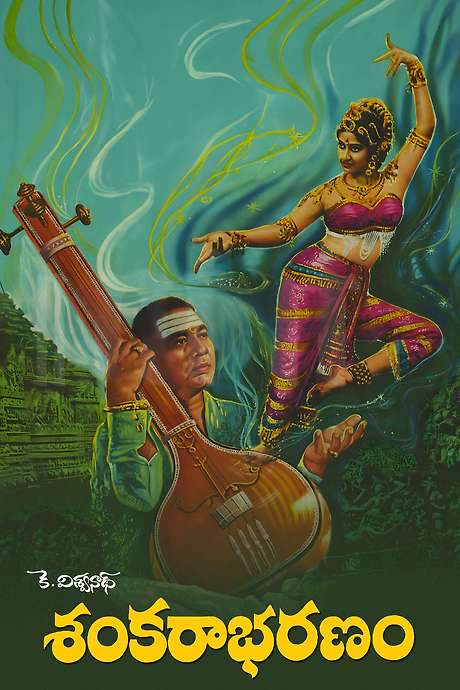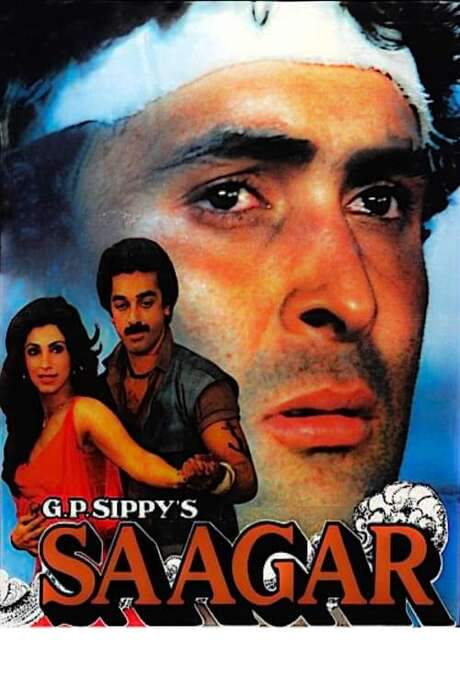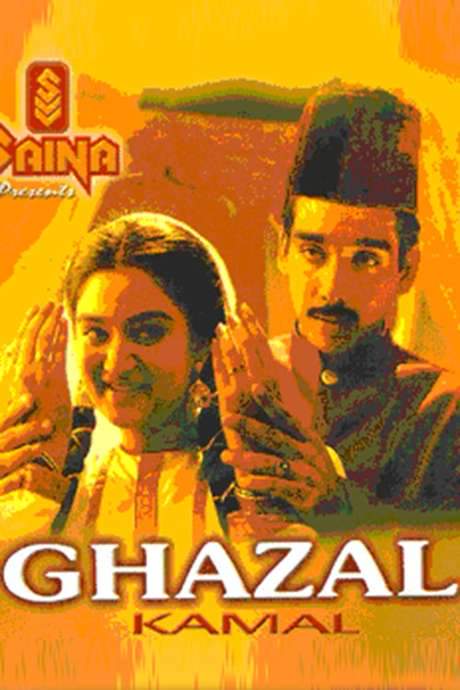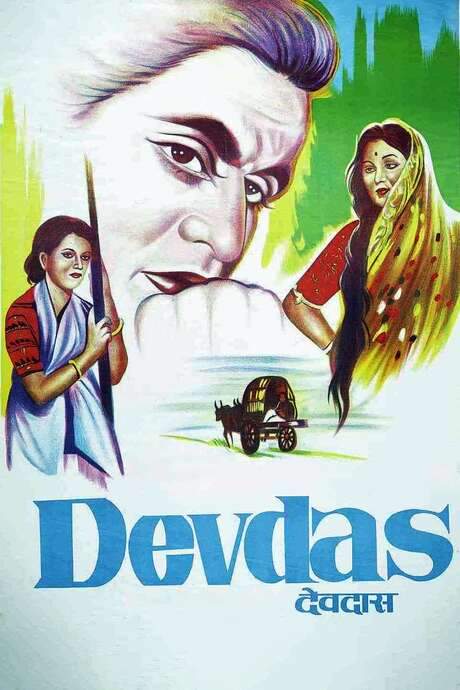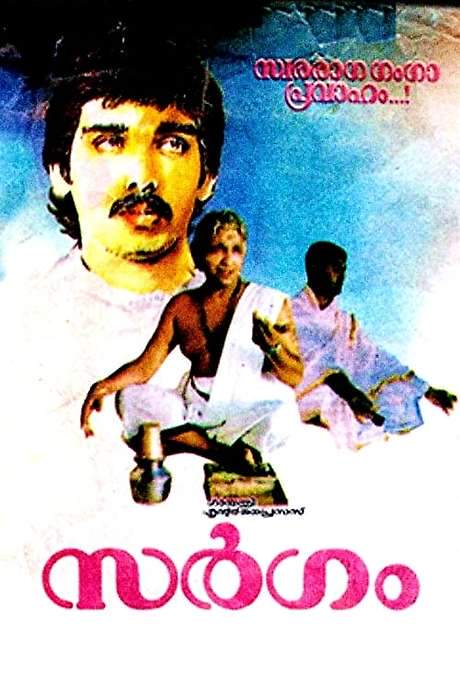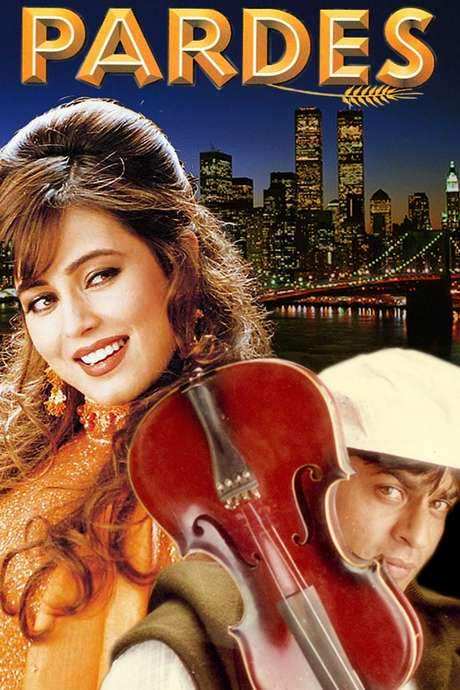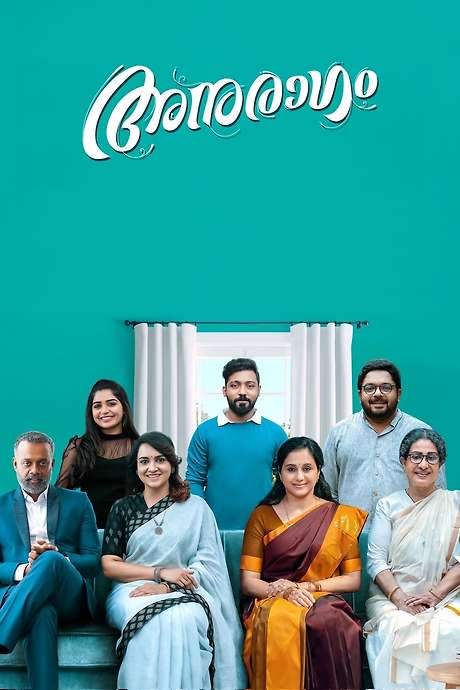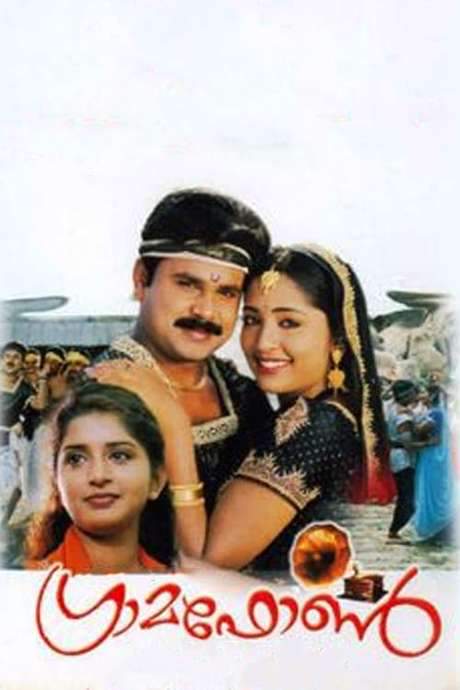
Gramophone
Year: 2003
Runtime: 148 mins
Language: Malayalam
Director: Kamal
Sachidanandan (Dileep) runs an antique shop on the historic Jewish Street in Kochi and is known for his collection of vintage gramophone records. Though surrounded by music, he despises it, believing his father never profited from the trade. When celebrated singer Aryadevi, who launched her career thanks to Raveendran, arrives from Bombay with her daughter Pooja (Navya Nair), their worlds collide.
Warning: spoilers below!
Haven’t seen Gramophone yet? This summary contains major spoilers. Bookmark the page, watch the movie, and come back for the full breakdown. If you're ready, scroll on and relive the story!
Gramophone (2003) – Full Plot Summary & Ending Explained
Read the complete plot breakdown of Gramophone (2003), including all key story events, major twists, and the ending explained in detail. Discover what really happened—and what it all means.
Sachidanandan, Dileep, is a hardworking and principled man who runs an antique shop with his father’s close friend, Oduvil Unnikrishnan as Pattu Settu, while also juggling several side businesses. He inherits the burden of his father Ravindranath’s failed singing career, a collapse that happened after Arya Devi, the student-turned-rival played by Poornima Anand, plagiarized Ravindranath’s composition. This past shadow colors Sachi’s view of music: despite the family’s debt and the pressure to perform, he harbors a quiet resistance to singing, preferring a life built on work and restraint rather than pursuit of stardom. The fault line in the family’s history— Arya Devi’s alleged betrayal—looms large, shaping the attitudes of close friends like Saigal Yusaf and Tabla Bhaskaran, whose loyalties and grievances intertwine with the present.
In this world of duty and debt, Sachi’s childhood friend Jennifer, a hardworking Jewish cleaner in a hotel, emerges as a steady, empathetic presence. Jennifer, portrayed by Meera Jasmine, finds in Sachi a kind of steadiness she has rarely seen, and a quiet romance begins to bloom between them. Jennifer’s family, especially her grandfather Gregory, Janardhanan, distrusts the man she has chosen, creating a tension that threads through the couple’s hopes and the larger immigrant dream they all face. The possibility of moving to Israel—under the Law of Return, which requires marrying someone from Israel—looms as a hopeful path but also a source of heartache, because Sara, Revathi (the daughter of the family’s circle), falls for Sachi’s father’s music and life, complicating the plan’s simple moral arc.
Into this already delicate balance enters Arya Devi’s world anew. Arya Devi, Poornima Anand, travels to Kochi with her secretary Mathachayan, T. P. Madhavan, and her daughter Pooja, Navya Nair, to settle old property issues. They check into the same hotel where Jenni works, and the two generations of women—Arya Devi and Pooja—soon cross paths with the cleaner who loves Sachi and the antiquarian who stores his father’s songs somewhere in the past. Arya Devi’s financial troubles—once a life of luxury now reduced to debt—are clear, and Sachi decides to step in: he borrows money to clear Arya Devi’s hotel debts, paying the bills himself with a sense of responsibility that marks his growing willingness to break his own vow against singing.
As Pooja and Jenni connect, a bond forms between the two women who share a secret tenderness for Sachi. Pooja, who is Arya Devi’s daughter, becomes a bridge between the families and a catalyst for deeper feelings. She comes to see in Sachi not just a man who helps others but a singer with a voice that could carry the family’s legacy forward in a new direction. In a parallel thread, Jenni discovers that her childhood friend—another singer in the family’s orbit—has been instrumental in shaping Sachi’s unseen talents. When Jenni learns that Arya Devi’s wealth of talent has led to pain and betrayal, she begins to reconsider her own plans with Sachi—an interplay of love, loyalty, and the pull of art.
The plot thickens as a forward-looking partnership emerges: Pooja becomes aware of Sachi’s musical talent, and the two women begin a collaborative path to showcase his gifts. Pooja’s support helps to assemble a portfolio of albums and songs, pieces sent to Sachi by Pooja’s friend who believes in his potential. The plan encounters a betrayal, though: a friend translates the songs into Hindi and publishes them without proper credit, an act that sorely tests Pooja’s trust and reveals underlying tensions in the web of alliances surrounding Arya Devi’s household. Pooja reveals that she did not know about the deception and apologizes on behalf of her mother, choosing to stay in Kerala and support Sachi’s talent rather than pursue a quick path to fame.
Meanwhile, the countdown to Jenni’s departure to Israel continues. Sara, the daughter of Gregory’s household and a key figure in these intersecting fates, finally meets the man who has come to symbolize both opportunity and heartbreak for her family. Her death, soon after visiting Sachi, becomes a turning point that forces Gregory to admit the truth that Isahakh had told him: he had not secured the tickets for all of them, only for Jenni. The revelation shatters some of the families’ assumptions about Sara—once viewed as a potential cheater by others—and reframes their decisions about staying or leaving. As the departure approaches, Sachi realizes the depth of his own feelings for Jenni and expériences a bittersweet moment of clarity: he should have asked her to stay, to give their relationship a chance.
In the immediate aftermath, Pattu Settu—Sachi’s loyal ally—offers quiet consolation, reminding him that life often asks for patience more than perfidy. A startling twist completes the emotional arc: Isahakh’s manipulation is laid bare, exposing that the ticket arrangements were skewed in Jenni’s favor, not to the broader family, and as a result, Jenni’s family resolves to remain in Kerala. Gregory, too, steps forward to apologize for any hurt he caused, becoming a more tempered figure in the process. And then, in a final, intimate gesture, Sachi confesses his love to Jenni, and they share a heartfelt hug that seals their bond against the backdrop of loss, risk, and a shared dream of music and belonging.
Original Ending:
The film’s original cut carried a bittersweet ending in which Sachi comes to grips with his love for Jenni but realizes he cannot prevent her departure. He accepts the separation but finds “a glimmer of happiness” in knowing that Jenni loved him too, and with the encouragement and support of Pooja and his father’s friends, he chooses to pursue singing—following in his father’s footsteps—without giving up the hope of someday reuniting with Jenni.
In the released version, the emphasis shifts toward a more hopeful resolution: Sachi leaves room for his own growth as a singer, takes up the mantle of his father’s craft, and embraces the possibility of a future reunion with Jenni, even as the immediate heartbreak of separation passes. The final note remains one of tenderness and resilience, with Sachi recognizing that love and art can coexist and that a life in Kerala, surrounded by friends who believe in him, can still lead to happiness.
Note: This rephrased summary preserves the film’s core relationships, twists, and emotional turns while maintaining a neutral tone and a detailed, character-driven view of events, and it reflects the distinctions between the original ending and the later release.
Last Updated: October 09, 2025 at 15:22
Explore Movie Threads
Discover curated groups of movies connected by mood, themes, and story style. Browse collections built around emotion, atmosphere, and narrative focus to easily find films that match what you feel like watching right now.
Movies about bittersweet family legacies like Gramophone
Stories where a family's artistic past complicates a tender but unresolved love story.If you enjoyed the blend of family history and romance in Gramophone, explore more movies like it. These stories feature characters grappling with their artistic or cultural past while navigating tender but complicated relationships, often culminating in bittersweet yet hopeful endings.
Narrative Summary
The narrative typically follows a protagonist who resists or is haunted by their family's legacy, often artistic. Their journey involves reconciling with this past, which is frequently catalyzed by a new romantic interest who embodies or appreciates that very legacy. The central conflict between personal identity and familial expectation is resolved through acceptance of the past, but the romance often ends in a poignant, unresolved separation that emphasizes personal growth over conventional happiness.
Why These Movies?
Movies are grouped here for their shared bittersweet tone, medium emotional weight, and focus on the interplay between inheritance and love. They deliver an experience that is reflective and melancholic yet infused with tender hopefulness, appealing to viewers who appreciate character-driven stories with rich emotional layers.
Movies with nostalgic character studies like Gramophone
Quiet dramas where a character's reflective solitude is disrupted by the past.Fans of Gramophone's nostalgic atmosphere and reflective protagonist will enjoy these similar movies. Discover character-driven dramas set in richly detailed, everyday environments where a solitary individual's life is changed by an encounter that connects them to a past they've tried to forget.
Narrative Summary
The plot is driven by character introspection rather than high-stakes events. A protagonist, often defined by their connection to a specific place or trade, is living a life of quiet routine marked by a subtle sadness. The arrival of a new character or a piece of forgotten history disrupts this equilibrium, triggering a slow-burn emotional journey centered on memory, loss, and the possibility of reconnection or forgiveness.
Why These Movies?
These films share a specific mood blend of nostalgia, melancholy, and quiet hope. They are united by a steady, deliberate pacing that allows for deep immersion in the character's inner world and the sensory details of their environment, creating a deeply atmospheric and emotionally resonant experience.
Unlock the Full Story of Gramophone
Don't stop at just watching — explore Gramophone in full detail. From the complete plot summary and scene-by-scene timeline to character breakdowns, thematic analysis, and a deep dive into the ending — every page helps you truly understand what Gramophone is all about. Plus, discover what's next after the movie.
Gramophone Timeline
Track the full timeline of Gramophone with every major event arranged chronologically. Perfect for decoding non-linear storytelling, flashbacks, or parallel narratives with a clear scene-by-scene breakdown.

Characters, Settings & Themes in Gramophone
Discover the characters, locations, and core themes that shape Gramophone. Get insights into symbolic elements, setting significance, and deeper narrative meaning — ideal for thematic analysis and movie breakdowns.

Gramophone Spoiler-Free Summary
Get a quick, spoiler-free overview of Gramophone that covers the main plot points and key details without revealing any major twists or spoilers. Perfect for those who want to know what to expect before diving in.

More About Gramophone
Visit What's After the Movie to explore more about Gramophone: box office results, cast and crew info, production details, post-credit scenes, and external links — all in one place for movie fans and researchers.

Similar Movies to Gramophone
Discover movies like Gramophone that share similar genres, themes, and storytelling elements. Whether you’re drawn to the atmosphere, character arcs, or plot structure, these curated recommendations will help you explore more films you’ll love.
Explore More About Movie Gramophone
Gramophone (2003) Scene-by-Scene Movie Timeline
Gramophone (2003) Movie Characters, Themes & Settings
Gramophone (2003) Spoiler-Free Summary & Key Flow
Movies Like Gramophone – Similar Titles You’ll Enjoy
Rhythm (2000) Full Summary & Key Details
Mugavari (2000) Spoiler-Packed Plot Recap
Vinodayathra (2007) Film Overview & Timeline
Amaram (1991) Ending Explained & Film Insights
Sankarabharanam (1980) Spoiler-Packed Plot Recap
Saagar (1985) Complete Plot Breakdown
Prem Rog (1982) Plot Summary & Ending Explained
Guru Dakshina (1987) Spoiler-Packed Plot Recap
Ghazal (1993) Full Movie Breakdown
Devdas (1955) Spoiler-Packed Plot Recap
Sargam (1992) Movie Recap & Themes
Pardes (1997) Movie Recap & Themes
Anuragam (2023) Story Summary & Characters
Ghar (1978) Complete Plot Breakdown
Gramapanchayath (1998) Plot Summary & Ending Explained
















